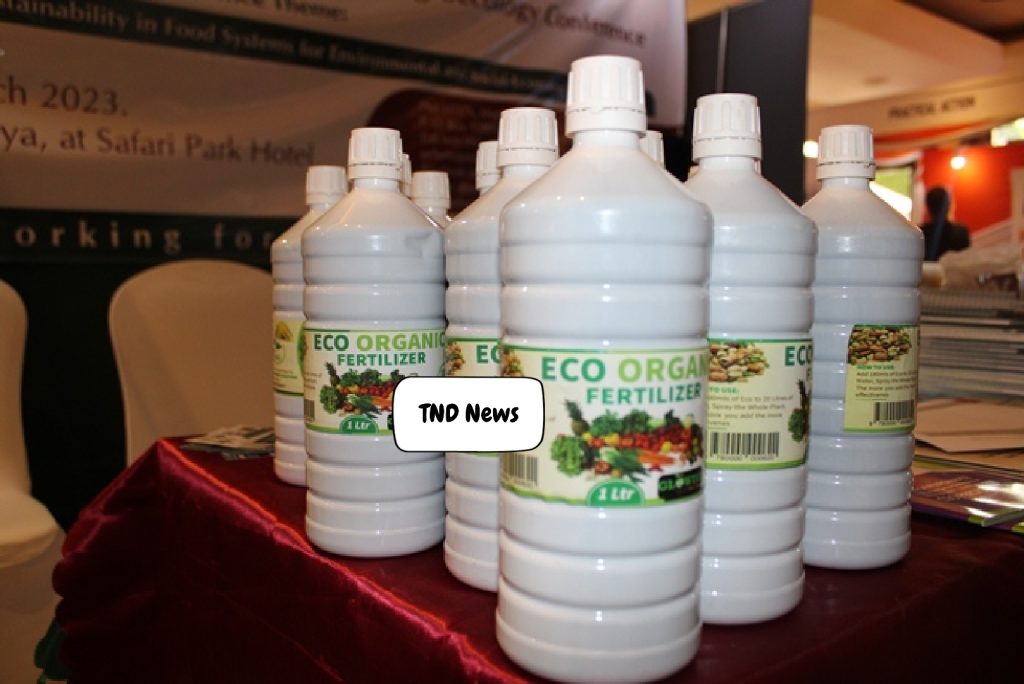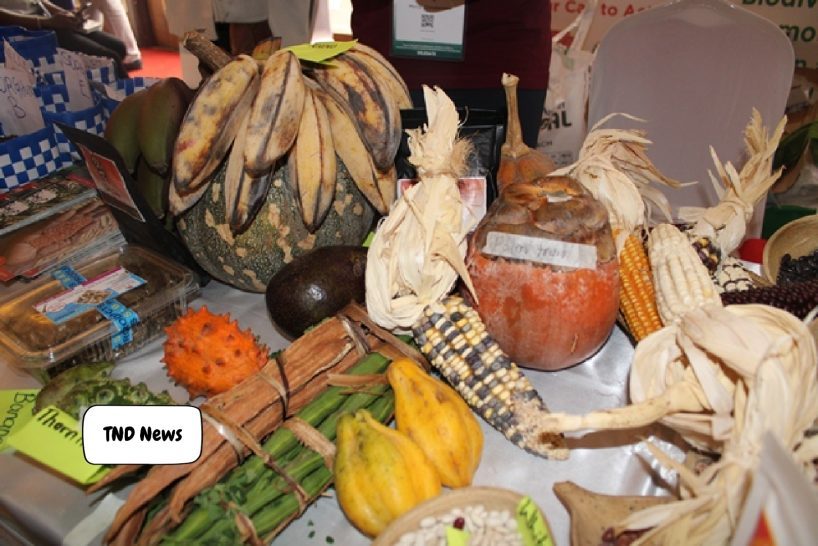Biovision Africa Trust (BvAT) jointly with the African Union Ecological Organic Agriculture Initiative (AUEOAI) and agroecology partners have called for action from the global community, regional and the countries in order to transition to agroecology.
The call was made during 1st Eastern Africa Agroecology Conference held in Nairobi, Kenya. The conference was attended by more than 500 participants from 20 countries largely from Eastern Africa, West Africa, Southeast Asia, Europe, the USA, and other parts of the world.
It was organized under the theme “Transforming Food Systems for Responsible Production, Consumption, and Social wellbeing”.
The call to the global community
The conference called upon the United Nations and all its allied agencies to sustain and enhance the campaign for continued adoption and implementation of the Sustainable Development Goals for healthy and sustainable food systems.
The conference also called upon the global community to mobilize, target resources and coordinate investments in interventions that promote the adoption and scaling out of agroecological principles and practices as core to its strategic pillars for funding, and these include collaborative research and development, convening global dialogues on agroecology.
Additionally, the conference called the global community to sustain agroecology advocacy at the global level by anchoring the FAO’s ten (10) elements of agroecology and the High-Level Panel of Experts (HLPE) thirteen (13) principles of agroecology in food systems.
At the continental level
The conference calls upon all African governments through the African Union (AU) to empower and invest in its established Ecological Organic Agriculture Initiative to sustain its development in Africa and promote coherently and coordinated Mutual Accountability by Member States in alignment with respective commitments and declarations including the Agenda 2063.
African governments also urged to promote United Nations Sustainable Development Goals (SDGs), in addition to the United Nations Framework Convention on Climate Change (UNFCCC) and the Convention on Biological Diversity (CBD) and to implement the AU Heads of States and Governments’ Decision on Ecological Organic Agriculture of 2011.
Others are Review National Agricultural Investment Plans (NAIPs) and Regional Agricultural Investment Plans (RAIPs) to integrate into Ecological Organic Agriculture/Agroecology. Sustain agroecology advocacy at the continental level by anchoring its key messages on The AU’s Decision on Ecological Organic Agriculture of 2011.
At the country level
The conference appeals for the governments to comply with their commitments and in a coherent and coordinated manner align respective policies to the declarations and agreements including the global, continental, and regional commitments, allocate budgets to Agroecology programs and projects including special programs that target the youth and women.
The countries are expected to develop, review, and implement coherent policies supported with institutional frameworks for the promotion of the adoption of agroecology principles, coordinate stakeholders in the agroecology space to harness synergies, and call for efficient utilization of available resources.
Each country is asked to facilitate the implementation of adoption of standards for agroecology products and by extension facilitate trade in agroecological products.

Dr. David Amudavi, the Executive Director of Biovision Africa (BvAT) noted that this is an indication of the importance the conference subject generates not only for Eastern Africa but also for the Continent and the World at large.
He also observed that the conference was building on the success registered after the 1st International Agroecology Conference held in June 2019 at the same venue under the Theme: ‘Transforming Agriculture and Food Systems in Africa, Reducing synthetic fertilizers and pesticides by scaling agroecology and promoting Ecological Organic Trade’, and the United Nations Food Systems Summit (UNFSS) held in 2021.
The 2021 summit was held, among others, to share national and regional food systems transformation paths in support of the 2030 Agenda for Sustainable Development 2030 Agenda.
“I want to appreciate the tremendous efforts currently happening on agroecology at the global, continental, regional, county, and grassroots levels from research and development, adoption of innovations and technologies, trading in agroecology products, development of policy and regulatory frameworks,” added Amudavi.
Dr. Sarah Osiya who presented a paper on behalf of the Director of Agriculture and Rural Development AUC, Dr. Godfrey Bahiigwa, re-affirmed the AUC’s commitment to the implementation of The AU Heads of States and Governments’ Decision on Ecological Organic Agriculture of 2011.
“The indicators measure the extent to which organic agriculture policies are being integrated into members’ state development agenda,” the paper in part reads.
The chief guest, the State Minister for Agriculture in Uganda Mr. Fred Bwino Kyakulaga highlighted the challenge the world is facing is feeding a fast-growing global population that has been made worse by climate change and associated exigencies degradation of soils, and biodiversity loss.
He stressed the need for a sector-wide approach that offers pragmatic solutions that will allow for a sustainable supply of food, feed, and fiber for the people.

